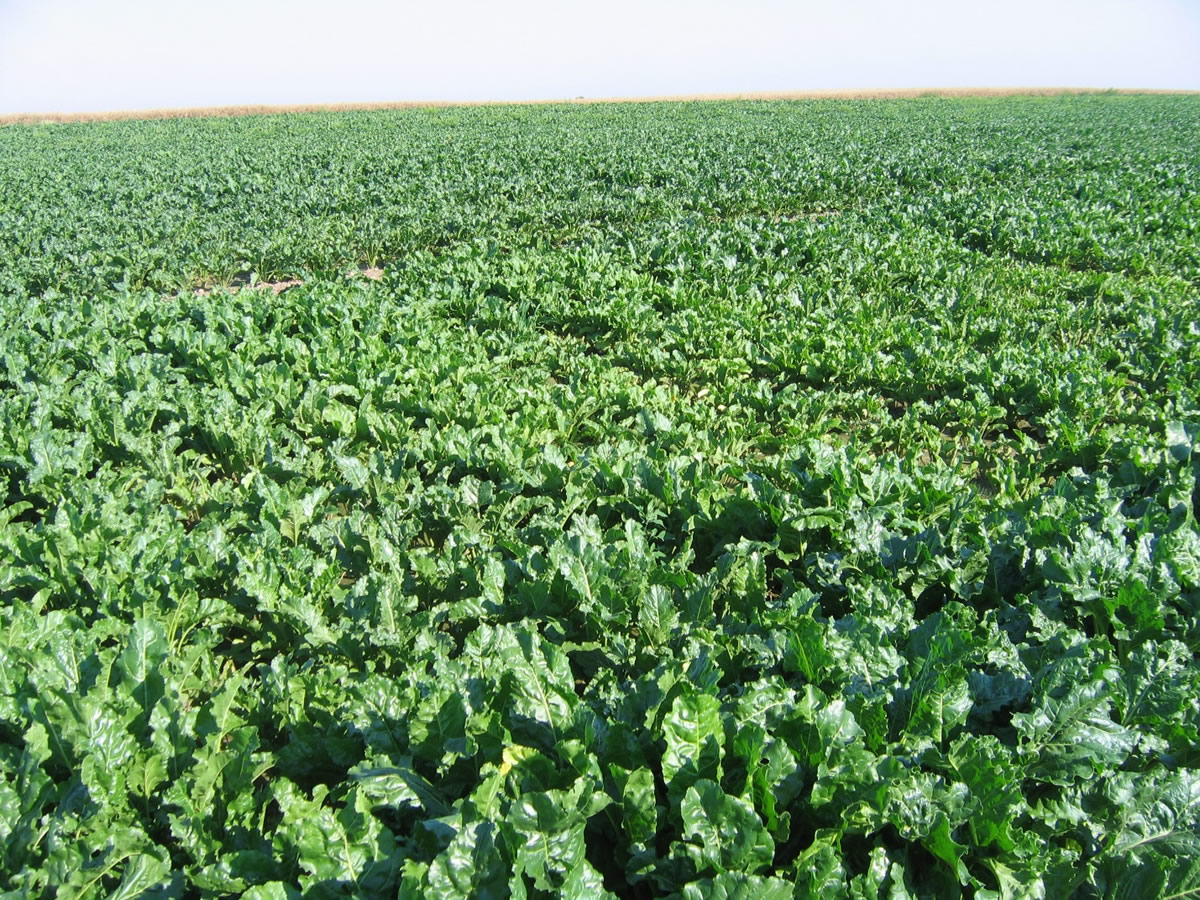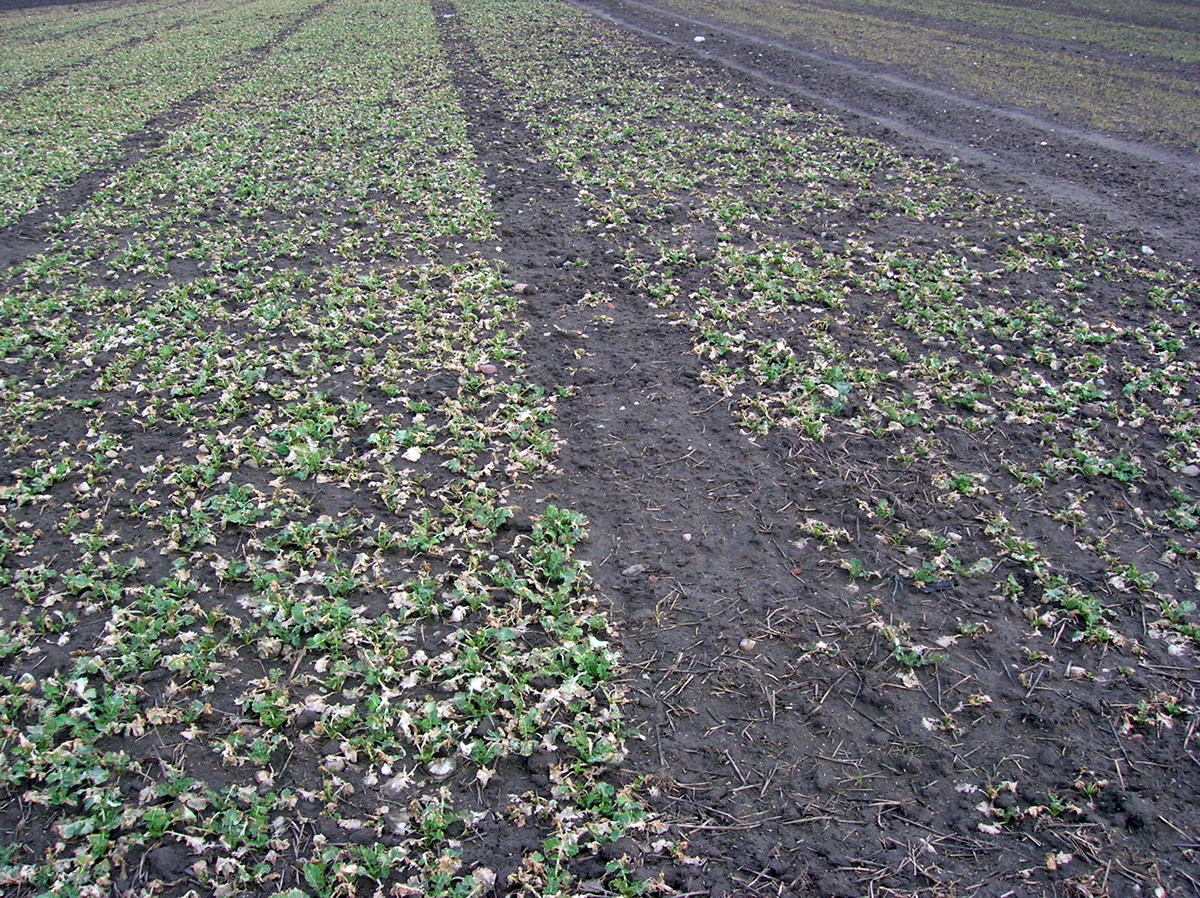 tel./fax: +48 22 652 90 61 to 64
tel./fax: +48 22 652 90 61 to 64Potassium needed instantly
The main procedure shaping the future yield of cultivated crops is mineral fertilization. It is potassium, in addition to nitrogen, that plays the most important role in growing crops as the most yield limiting nutrient in Poland. It is due to the fact that the Polish soils are mostly light and poor in potassium. Nearly 40% have low or very low K content and only about 30% of the soils are above average. The soil however being the basic means of production, if kept in good condition, allows to obtain good harvest for many years, thus positively influencing the financial condition of the farms. Potassium is absorbed by plants in huge quantities (e.g. rape, potato or beet even 200-400 kg K2O/ha). As a consequence it is taken out of with crops from the field. Considering the fact that in practice application of potassium is much lower than its volume taken out with crops , further impoverishment of the soil in this nutrient is taking place. For a long time now, we have been observing a negative balance of potassium.
Potassium plays a key role in the accumulation of vegetative mass and cannot be replaced by other nutrients. Its unique role is particularly evident during periods of water stress, when the intensity of photosynthesis is significantly inhibited. Potassium controls the water balance by regulating the hydration of plant tissues, which allows water to be retained in the plant and reduces its loss. In sugar beet, due to potassium deficiency under water stress conditions in summer, yield reduction can reach as much as 1/3. Plants well supplied with potassium are in better condition than those undernourished, which allows to minimize the effects of temporary lack of water and significantly reduce yield decrease.

Fig. 1: Local malnutrition of plants with potassium (A. Artyszak)
The plants take up potassium throughout the whole growing period. However, at critical developmental stages, the daily intake of potassium increases and often reaches more than 10 kg K2O/ha. Since the availability of this nutrient depends on the potassium content in the soil, the soil must be well saturated with potassium in order for the plants to take up the necessary quantities. Therefore, the main task of every farmer is to ensure that the soil is at least medium-rich in available potassium.
The yields of crops in Poland are mainly shaped by the use of high doses of nitrogen fertilizers. Expeditures for nitrogen fertilizers are the highest and their share in the structure of production costs ranges from 7 to 15%. Usually, the effectiveness of N utilization from nitrogen fertilizers does not exceed 50%. It is in farmers` interest to minimize losses of nitrogen.
Potassium, which is responsible for the rate of nitrogen uptake by roots from soil, plays a very important role in nitrogen management. Its deficit has a negative impact on the size of plant assimilation surface, especially during peak periods of plant demand for nitrogen. On the other hand, the provision of an adequate dose of potassium contributes to a better utilisation of N by the plant and an increase in yield. Potassium fertilizer doses in many farms are far from optimal and, as a result, the yield potential of modern varieties is not fully reached.
The effectiveness of K fertilization also depends to a large extent on the period of application of potassium fertilizers. Without doubt autumn is the best period for application of potassium. Recently, the spring application of potassium to winter crops has been quite popular. The reason is to postpone expeditures to the spring period, after obtaining subsidies. However, to a large extent this is quite risky solution, which should only be carried out as the last resort on sandy and humus-poor soils or in case the autumn application potassium fertilizers was not possible . On medium to heavy soils, where potassium is retained by the soil sorption complex, it is more appropriate to use potassium in autumn.
Although winters in recent years were less severe than before and often were even mild, the autumn supply of potassium to plants allows the accumulation of organic matter in the cellular juice of plants, which effectively protects them from the adverse effects of low temperatures in winter and spring frost in May (Figure 2).

Fig. 2. Overwintering of rape plants (left: potassium fertilized plants)
In autumn, winter cereals take up up to 50 kg K2O/ha, while rape plants accumulate from 60-80 kg K2O/ha to even 100 kg K2O/ha, i.e. about 25% of potassium accumulated during the growing season. In autumn, the formation of generative organ compounds of winter cereals and rape begins. Plants well nourished with potassium at that time develop a stronger root system, which enables efficient absorption of water and nutrients also in deeper layers, which has a positive impact not only on the preparation of plants for winter rest, but also guarantees their rapid regeneration in spring and proper growth throughout the entire growing season, and as a result will result in better yields.
The use of potassium in spring is less beneficial because it will be concentrated in the upper, often dry soil layer, causing the plants to root superficially. On the other hand, potassium fertilizers should be well mixed with the soil to a depth of the topsoil of about 20 cm, which will allow the roots to better reach the potassium. Therefore, potassium fertilization should preferably be carried out before winter ploughing. Autumn is also a better time for spring plants, also for organisational reasons. Let's take a look at this year's spring. The optimal dates for spring sowing this year have been significantly delayed, and the time window for nursing crops, application of mineral fertilizers and sowing has shrunk dramatically. This backlog of work significantly reduced the possibility of spreading fertilizer at the optimum time.
We don't know what the weather will be like this autumn, whether the rainfall distribution will be favourable for future sowing or whether winter will cause damage to winter crops. In order to guarantee a high yield and a sufficient nutrient content in the soil, it is necessary to include potassium fertilizers in a sufficient quantity.
When determining the potassium dose, knowledge of the soil condition can be crucial not only to shape future yields, but also to optimize production costs in conditions of lower productivity and falling crop prices. We must be aware that it is not worthwhile to give up mineral fertilizers, including potassium fertilizers, or drastically reduce potassium doses for reasons of economy. The question is, what doses will ensure the expected yield and be effective in terms of the financial result.
If the soils have an average potassium content, the dose of potassium fertilizers should be set at the level of the nutritional requirements. If the soil is rich in potassium, the application rate can be reduced by 20-30%, while for the soils low or very low in potassium, the application rate should be increased by 25 and 50% respectively. It will take several years for the soil to reach the average level, but if we want to be less dependent on climate change in the future, it is worth taking care of the soil now. It should be taken into account that in order to increase the potassium content of the soil by 1 mg/100 g of soil it is necessary to apply at least 30 kg K2O/ha, i.e. 50 kg of potassium salt.
The most popular potassium fertilizer for many years is a highly concentrated, soluble and highly concentrated potassium salt (KCl) containing 60% K2O. The basic doses of potassium fertilizers used should be at least 130-170 kg of potassium salt per 1 ha for cereals, 200-270 kg KCl/ha for rape, 170-200 kg KCl/ha for maize, 400 kg KCl/ha for sugar beet.
The use of potassium salt together with other granulated single-component fertilizers allows to optimize the nutrition of plants in specific soil and climatic conditions, taking into account other yield-forming factors, by precise selection of each macro-component. Nowadays, we cannot afford to make inconsiderate losses at the planning stage.
Due to its geographical proximity and good neighbourly relations, Belarus is a key supplier of high quality potassium salt to Poland. JSC Belaruskali is a leading producer of potassium fertilizers in the world, bringing more than 11.5 million tons of potassium salt annually. The world leader in the export of potassium fertilizers JSC Belarusian Potash Company (JSC BPC) together with Aurepio-Kalij Sp. z o.o. always strive to meet the needs of Polish farmers for potassium, in order to provide our customers with the benefits of increased yields obtained by optimizing potassium fertilization.
Dr. Gennadi Peskovski, Fertilizer Advisor JSC BPC
